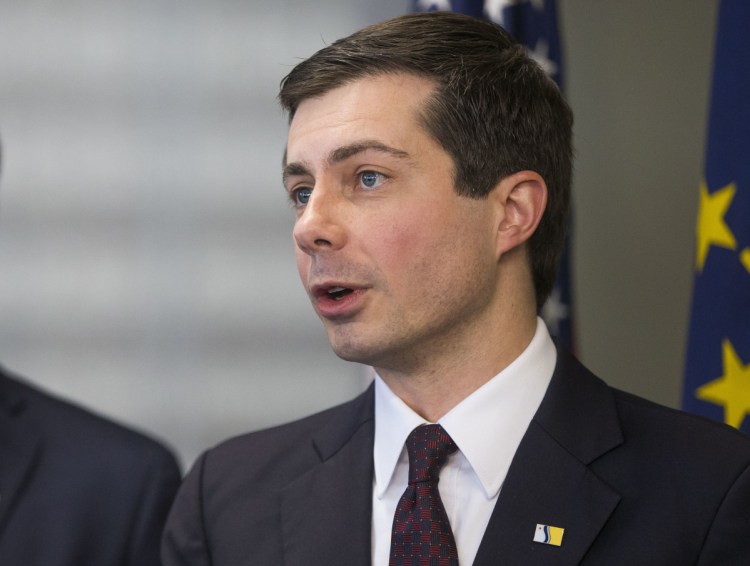South Bend, Indiana, Mayor Pete Buttigieg, who has signaled for months that he would try to leap from local to presidential politics, announced Wednesday that he will join the burgeoning cast of Democratic candidates in the 2020 race.
Buttigieg made his plans official in a video and email sent to supporters early Wednesday, before taking part in the U.S. Conference of Mayors meeting in Washington, D.C.
He announced in December that he would not seek a third term as mayor of the Indiana city, a move widely seen as a precursor to a presidential run. He said Wednesday he was setting up an exploratory committee for president, the legal mechanism allowing him to raise and spend money on behalf of his campaign.
Buttigieg suffused his announcement with references to his youth and the generational exception he represents compared to most of the Democratic field. He turned 37 on Saturday, making him the youngest entrant so far in the presidential race.
“I belong to a generation that is stepping forward right now. We’re the generation that lived through school shootings, that served in the wars after 9/11, and we’re the generation that stands to be the first to make less than our parents unless we do something different,” he said in his announcement video.
“We can’t just polish off a system so broken. It is a season for boldness and a focus on the future.”
The millennial profile is only one of the attributes Buttigieg brings to the race: he is a former Rhodes scholar and Afghanistan veteran who is gay. (He married his husband, Chasten Glezman, last summer.) He ran unsuccessfully in 2017 for chairman of the Democratic National Committee.
He acknowledged Wednesday that he is “aware of the odds” he faces in leaping from local office — particularly one representing a city of just over 100,000 people — to a presidential campaign. But he also faced a dismal potential for rising to statewide office in his Republican-dominated state.
Like others considering a presidential run — among them Michael Bloomberg, the former mayor of New York, and Eric Garcetti, mayor of Los Angeles — Buttigieg is emphasizing his role in his city’s transformation.
After taking office at the age of 29, he confronted an industrial Midwest town that, like many others, had been left foundering by economic changes in recent decades that ruined much of the city’s financial base. He pushed to revitalize South Bend, draw in new residents and businesses, diversify the economy and clean up blighted, abandoned homes.
“When I arrived in office at the beginning of this decade, the national press said that our city was dying,” he said in his video. “People on the outside didn’t believe our city had a future.”
“We propelled our city’s comeback by taking our eyes off the rearview mirror, being honest about change, and insisting on a better future,” he said, suggesting that he would be able to force similar transformations at the national level.
Buttigieg’s brief entry announcement was light on specifics. He cited consumer protections, racial and social justice, cyber- and other security threats, climate change and freedom from interference by hostile foreign powers as some of the problems for which he would seek solutions.
But he also was aiming at something more historic — becoming the first gay nominee of a major political party.
Copy the Story LinkSend questions/comments to the editors.



Success. Please wait for the page to reload. If the page does not reload within 5 seconds, please refresh the page.
Enter your email and password to access comments.
Hi, to comment on stories you must . This profile is in addition to your subscription and website login.
Already have a commenting profile? .
Invalid username/password.
Please check your email to confirm and complete your registration.
Only subscribers are eligible to post comments. Please subscribe or login first for digital access. Here’s why.
Use the form below to reset your password. When you've submitted your account email, we will send an email with a reset code.